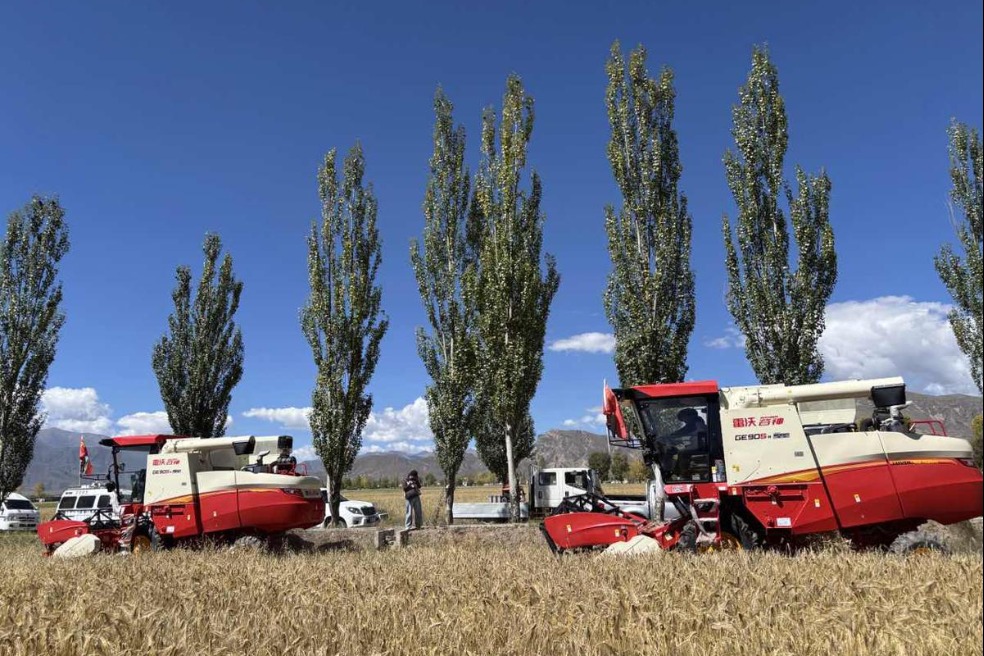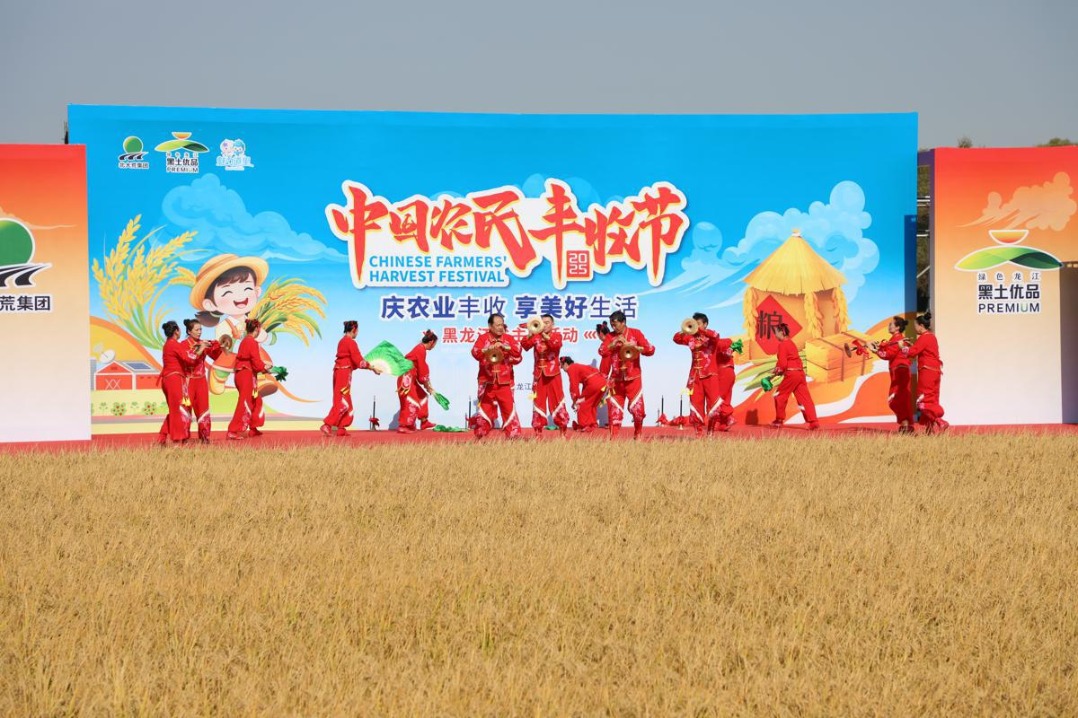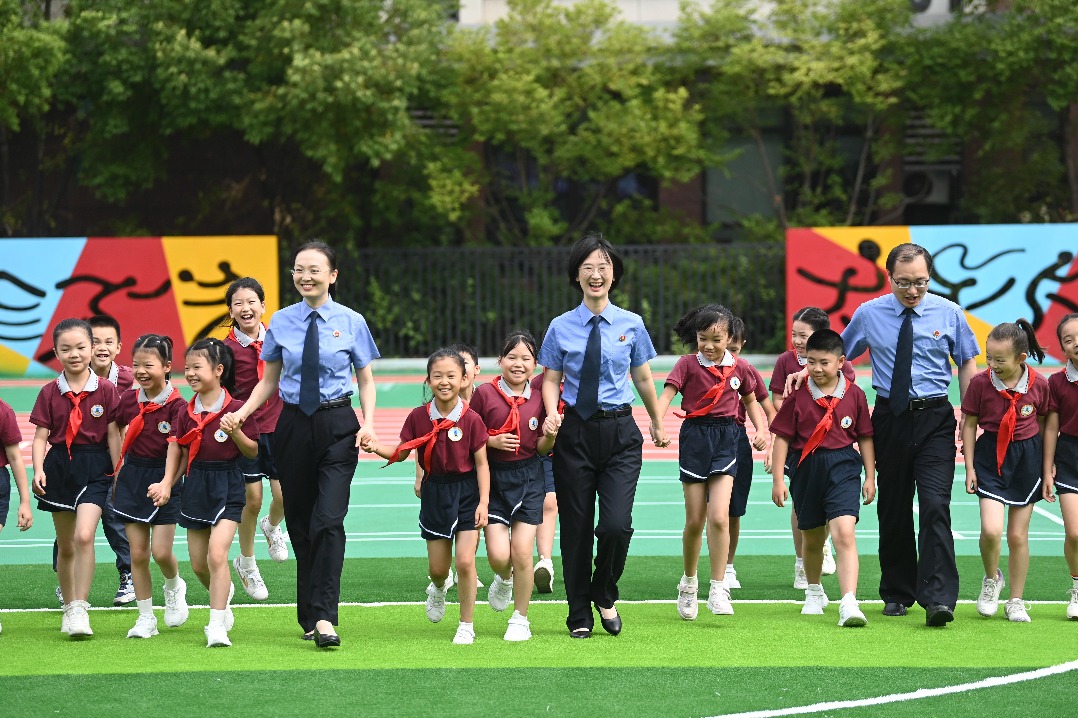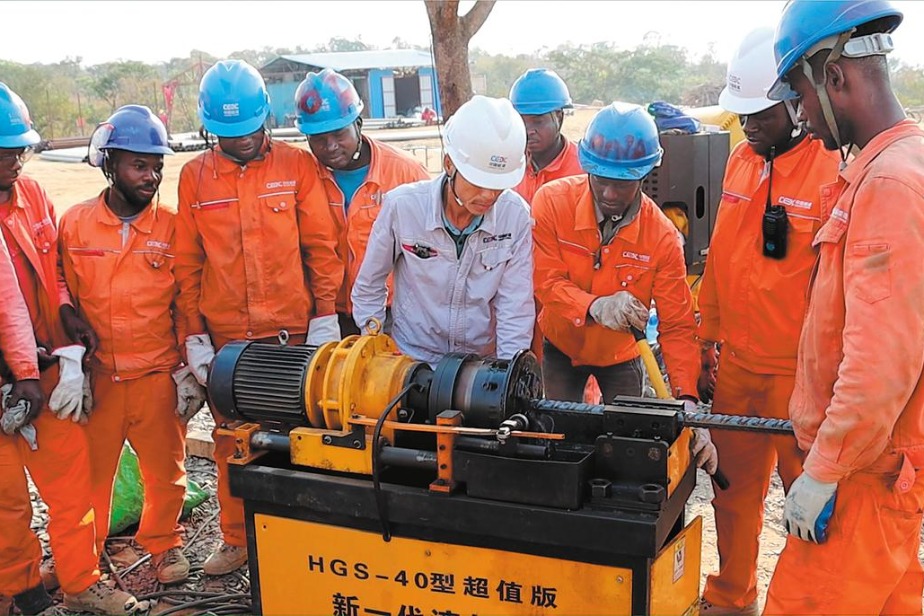Scams net millions of yuan intended for projects to raise living standards

 |
| Farmers in Fengning county, Hebei province, have been allocated funds to upgrade their facilities. ZHANG ZHIIQIANG/XINHUA |
Recent malpractice uncovered by auditors
? In 2012, 30 families in a village in Heyang county, Shaanxi province, who were living below the poverty line were forced to "donate" 5,000 yuan ($726) to apply for money from a poverty-alleviation fund. The committee of Shenli village applied on behalf of the families for funds to develop local tourism. However, the committee misused its authority by charging the villagers for services that should have been provided free of charge.
? More than 350 students from poverty-stricken families in Shangrao county, Jiangxi province, and 188 students in Shiqian county, Guizhou province, were denied financial aid by their local governments between 2015 and last year. The provision of relief funding from both the central and provincial government budgets is stipulated in government regulations. However, the local education authorities, which are legally obliged to request money for poverty-stricken students, didn't pass their details to the relevant poverty-alleviation departments, so the money wasn't allocated.
? Last year, the Agriculture and Animal Husbandry Bureau in Fengning county, Hebei province, was found to have used nearly 5.6 million yuan earmarked for poverty-relief loans to pay the wages of members of staff and for other business operations.
? Officials in Longjing, Jilin province, planned to establish and operate a rice wine project in a local village by the end of 2015. The central government allocated 490,000 yuan for the poverty-relief project, but a local contractor who was involved in the program failed to provide his share of the funding, which led to the project being shelved. Despite that, the local government held onto the funds until auditors learned about the abandoned project and ordered the money to be returned to the poverty-alleviation funding pool.
Living standards rise as efforts continue
The central government's large-scale efforts to alleviate poverty began in May 1986, with the founding of the State Council Leading Group Office of Poverty Alleviation and Development.
In the same year, the first national poverty level was set at 200 yuan ($29) annually per person. At the time, 125 million people nationwide were officially classified as living below the standard.
By 2000, the number of people who lacked basic clothing and food had fallen to 32 million. In 2001, the national poverty level was raised to 865 yuan per person, but by 2011, it had risen to 2,300 yuan.
The number of people classified as living in poverty has fallen significantly since the end of 2012, when poverty-alleviation work was established as a priority task at the 18th National Congress of the Communist Party of China.
Since 2013, more than 10 million people have been lifted out of poverty every year.
The growing number of poverty-alleviation projects and development plans has seen malpractice in a number of areas, such as the relocation of families to uninhabitable regions, and in efforts to develop projects related to businesses and the development of tourism in villages.
"The waste of government money, the embezzlement of poverty-alleviation funds and other corrupt practices have been uncovered. The severity of corruption has been greatly reduced since the anti-graft campaign began at the end of 2012. However, new problems have emerged," said Liu Yongfu, head of the State Council Leading Group Office of Poverty Alleviation and Development.
Government officials don't possess the money-management skills required for poverty-relief projects, and also lack the ability to assess projects objectively, he added.
Moreover, governments at the lower levels, such as counties and villages, were found to have the greatest number of cases of misconduct and corrupt practices, according to Liu: "Efforts should be made to prevent the misuse of poverty-alleviation funds. Our office has devised more-specific regulations and improved management of the process to supervise funds and ensure the money is used more efficiently."
The State Council Leading Group Office of Poverty Alleviation and Development is working with the Ministry of Finance to update regulations on the use of funds allocated by the central government for poverty relief. The changes will require funds be allocated to individual projects, which will strengthen supervision of specific projects.





































